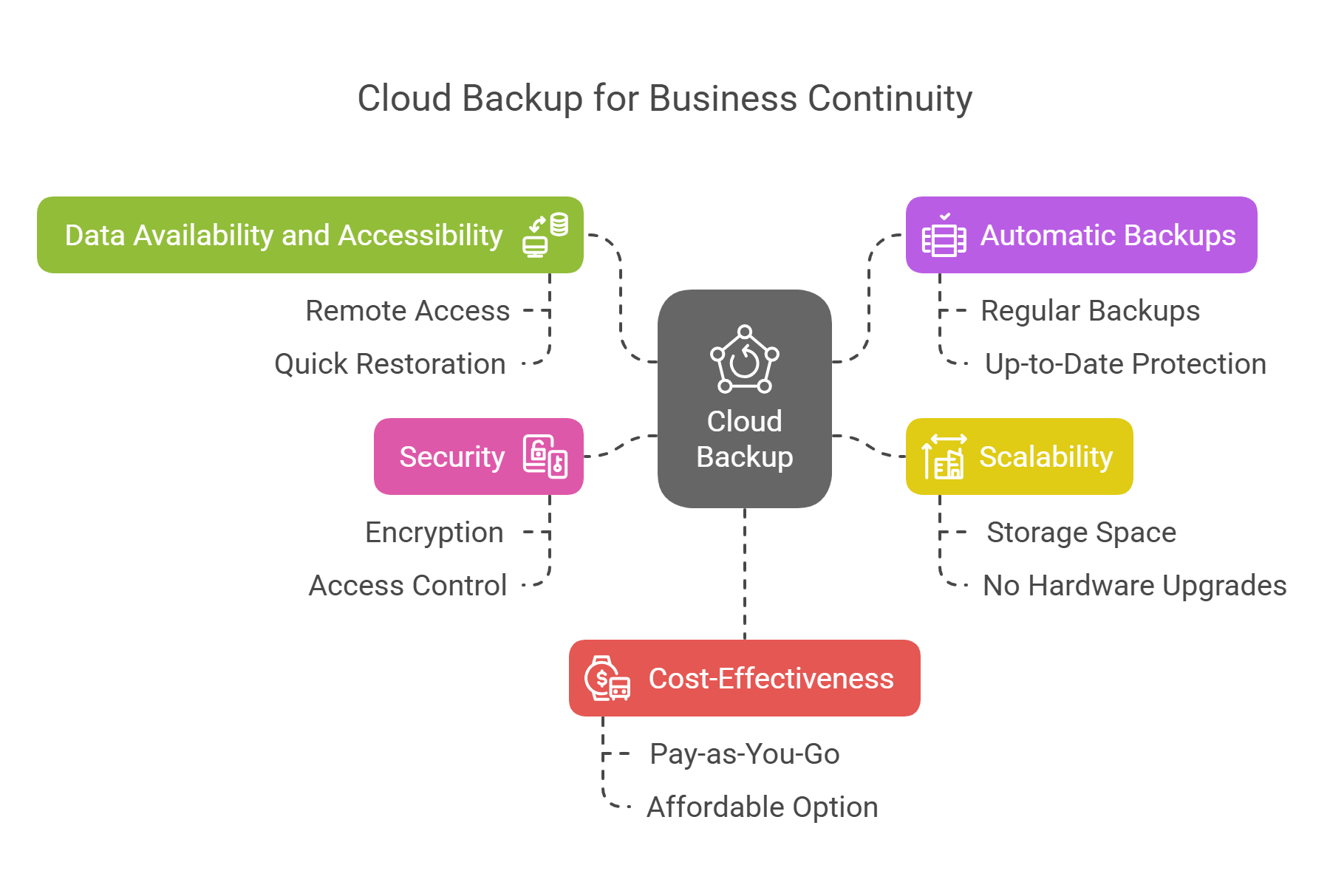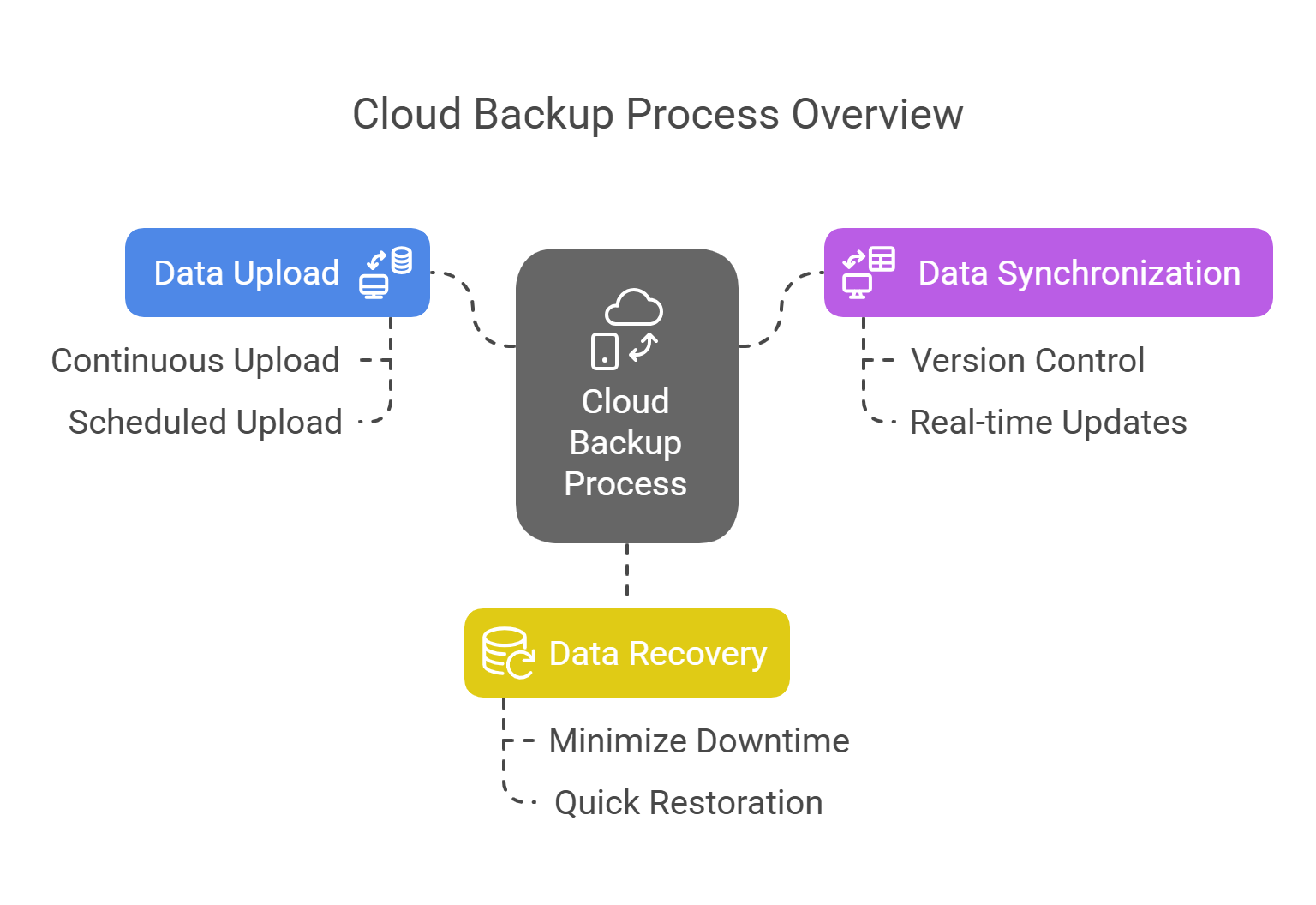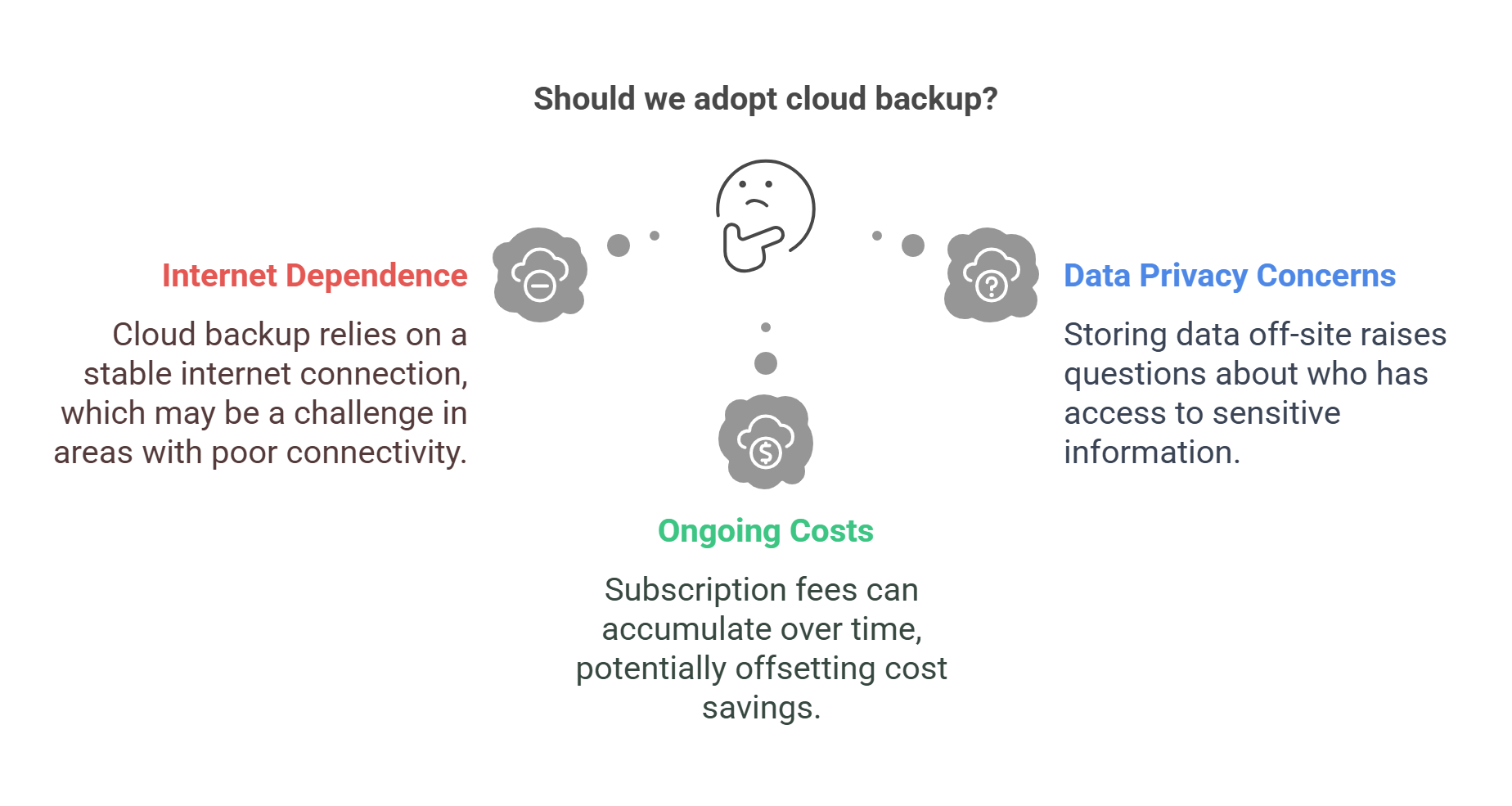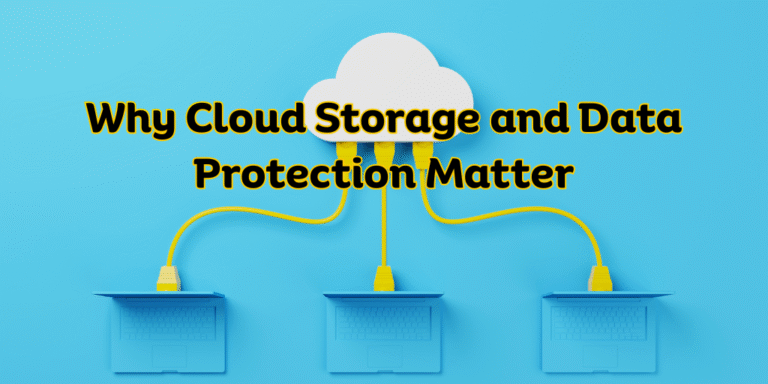In today’s fast-paced world, keeping your data safe and easy to recover is critical. Cloud backup solutions offer a reliable, scalable, and secure way to protect your business data. These solutions ensure your company can continue operating smoothly, even in the face of disasters, cyberattacks, or unexpected events. In this article, we’ll explain why cloud backup is vital for business continuity and how it can protect your company’s future.
What Is Cloud Backup?
Cloud backup is when you store your business data on remote servers using cloud services. It helps keep your data safe and easily accessible without using physical storage devices. Cloud backup is an essential part of any business continuity plan, as it protects your data from issues like system crashes, hardware failures, and cyberattacks.
Why Cloud Backup Is Essential for Business Continuity
Business continuity means making sure your business can keep running during and after emergencies. Data is the heart of your business, and losing it could cause major problems. Here’s why cloud backup is essential for business continuity:
-
Data Availability and Accessibility:
Cloud backups let you access your data remotely. You can restore it quickly if your systems are damaged, whether due to a disaster, hardware failure, or cyberattack. -
Automatic Backups:
Cloud services automatically back up your data regularly. This ensures your data is always protected and up to date, without requiring you to do it manually. -
Scalability:
As your business grows, so does your data. Cloud backup services adjust easily to your needs, offering more storage space without the need for expensive hardware upgrades.

-
Security:
Cloud backup providers use encryption and access control to secure your data. These services provide stronger security than most in-house IT teams, making them an excellent choice for businesses. -
Cost-Effectiveness:
Traditional backup methods can be expensive, requiring physical storage devices, maintenance, and IT staff. Cloud backup uses a pay-as-you-go model, making it a more affordable option as your business grows.
How Does Cloud Backup Work?
Cloud backup works by automatically transferring your business data to secure cloud storage over the internet. The data is then stored in remote servers located in data centers around the world.
Here’s how it works:
-
Data Upload:
Your initial data is uploaded to the cloud provider’s servers. This upload can happen continuously or according to a schedule you set. -
Data Synchronization:
Cloud backup services ensure that your data stays synced so that the most recent versions are available for recovery.

-
Data Recovery:
If you lose data, you can restore it quickly from your cloud backup, minimizing downtime.
Advantages of Cloud Backup for Businesses
-
Business Continuity Assurance:
Cloud backup makes sure your critical data remains available, even if your primary storage system fails. -
Disaster Recovery:
If a disaster happens, cloud backup provides a fast way to recover your data and get back to work. -
Remote Accessibility:
With cloud backup, you can access your data from anywhere, giving flexibility to employees working remotely or from various locations. -
Enhanced Security:
Cloud providers offer strong encryption and several layers of protection to keep your data safe from cyber threats. -
Minimal Infrastructure Needs:
Cloud backup eliminates the need for expensive physical hardware, reducing your IT costs.
Top Cloud Backup Solutions for Businesses in 2025
| Cloud Backup Service | Features | Best For | Pricing |
|---|---|---|---|
| Backblaze | Unlimited backup, strong encryption, easy to use | Small to medium businesses | $7/month per computer |
| Acronis | Backup and cybersecurity features, mobile access | Mid-sized to large businesses | $59.99/year for 500GB |
| CrashPlan | Continuous backups, high security | Small businesses, remote teams | $10/month per device |
| Carbonite | Automated backups, unlimited storage | Businesses needing large-scale storage | $6/month per PC |
Cloud Backup vs. Traditional Backup: A Comparison
| Feature | Cloud Backup | Traditional Backup |
|---|---|---|
| Data Storage | Remote servers | On-site physical media |
| Scalability | Easily scalable | Limited by hardware |
| Access | Remote access | On-site access only |
| Cost | Pay-as-you-go | High initial investment |
| Security | High encryption | Varies by solution |
| Backup Frequency | Automated | Manual setup required |
Securing Your Data with Cloud Backup
Cloud backup services provide excellent security to keep your data safe. Here’s how:
-
Encryption:
Your data is encrypted during both transmission and storage, making it unreadable to unauthorized users. -
Access Control:
Strict access control settings allow you to manage who can view or restore your backup data. -
Multi-Factor Authentication (MFA):
Many cloud services require MFA, adding extra protection for your data. -
Regular Audits:
Cloud providers perform regular audits to ensure they comply with industry security standards.
Risks and Challenges of Cloud Backup
Despite the many benefits, cloud backup has some challenges:
-
Internet Dependence:
Cloud backup requires a stable internet connection. In areas with poor internet, backups and restores may be slower.

-
Data Privacy Concerns:
Storing data off-site can raise questions about who has access to your sensitive information. -
Ongoing Costs:
While cloud backup is often cheaper than traditional methods, the subscription fees can add up over time.
How to Implement Cloud Backup for Your Business
-
Evaluate Your Business Needs:
Determine which data needs to be backed up and how often. -
Choose the Right Cloud Backup Service:
Select a cloud provider that fits your company’s size, security needs, and budget. -
Set Up Automated Backups:
Automate the backup process to reduce the risk of missing important files. -
Test Your Backup System Regularly:
Periodically test the system to make sure you can quickly recover your data when needed.
Conclusion
Cloud backup is a crucial part of business continuity. It ensures that your data is secure, recoverable, and accessible when needed. By investing in the right cloud backup solution, businesses can focus on growth without worrying about data loss. This investment will prepare your business for the future, ensuring you stay ahead of potential challenges.
FAQs
Q1: How does cloud backup ensure data security?
Cloud backup services use encryption, multi-factor authentication, and strict access controls to protect your data from unauthorized access and cyberattacks.
Q2: Is cloud backup suitable for small businesses?
Yes, cloud backup is perfect for small businesses as it offers cost-effective, scalable, secure, and automated solutions.
Q3: How often should I back up my data to the cloud?
The frequency depends on your business needs, but most companies back up their data daily or weekly. Automated backups make sure important data is never missed.
Q4: Can I restore my data if the cloud service goes down?
Most cloud providers have failover systems, so you can still access your data if the primary service is unavailable.


